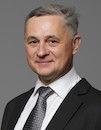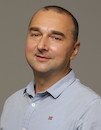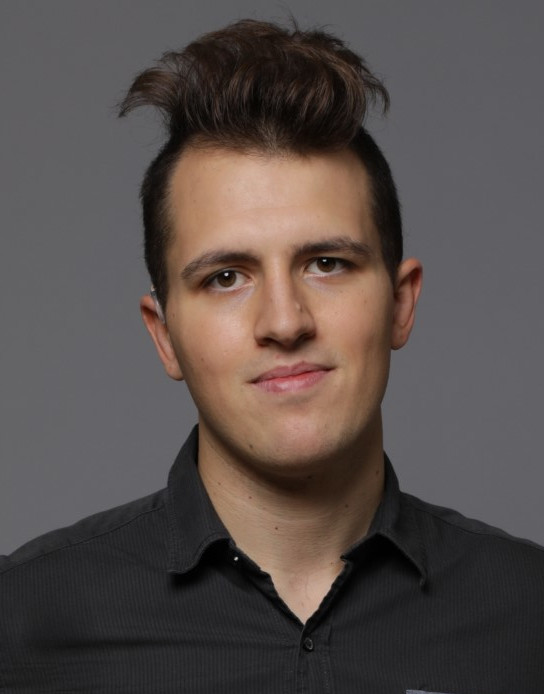Technology in Medicine
Data is displayed for academic year: 2023./2024.
Laboratory exercises
Course Description
Introduction to technology in medicine, Electrophysiology (sources of bioelectric signals), Biomedical instrumentation (principles of measurment and processing of bioelectric signals), Organs and systems in the human body 2 (including bioengineering and cellular engineering principles), Organs and systems in the human body 2 (Artificial organs - artificial heart, visual prosthesis (bionic eye), cochlear implant (bionic ear), Implantable devices 1 (Cardiac pacemakers, medical robots), Implantable devices 2 (Intrabody communication), Modelling of biological systems 1 (Modelling of nervous system and brain), Modelling of biological systems 2 (Modelling and visualization of human body), Medical imaging 1 (2D, 3D, 4D), Medical imaging 2 (Functional imaging), Telemetry systems for medical and sports monitoring, m-health, Biomedical engineering ethics.
Study Programmes
University undergraduate
[FER3-EN] Computing - study
Elective Courses
(6. semester)
[FER3-EN] Electrical Engineering and Information Technology - study
Elective Courses
(6. semester)
Learning Outcomes
- recognize different technologies in medical application
- explain physical principles of operation of medical devices and equipment
- analyze interaction of medical instrumentation and tissue
- differentiate invasive and non-invasive technologies in medicine
- combine knowledge from engineering with living world
- identify ethical problems in application of technologies in medicine
Forms of Teaching
Lectures
-
Field work-
Laboratory-
Grading Method
| Continuous Assessment | Exam | |||||
|---|---|---|---|---|---|---|
| Type | Threshold | Percent of Grade | Threshold | Percent of Grade | ||
| Laboratory Exercises | 50 % | 20 % | 50 % | 20 % | ||
| Quizzes | 50 % | 0 % | 50 % | 0 % | ||
| Mid Term Exam: Written | 50 % | 40 % | 0 % | |||
| Final Exam: Written | 50 % | 40 % | ||||
| Exam: Written | 50 % | 80 % | ||||
Comment:
Short knowledge tests are used to check the readiness of students for a particular laboratory exercise (entrance test) or to check what the student has learned in the exercise (exit test). Short knowledge tests are part of laboratory exercises and are scored as a whole.
Week by Week Schedule
- Historical perspective of BME, Ethical issues of BME, Significance of BME for health care & policy
- Bioamplifiers in the ECG, EEG, Sensing, conditioning, processing and analysis methods for designing the BMI
- Recording systems, Artefacts and electromagnetic interference
- Cellular organization, Tissues, Major organ systems
- Circulatory assisting devices and artificial heart, Blood gas exchange devices and artificial lungs, Dialisys and artificial kidney, Diabetes and artificiel pancreas, Artificial blood and other applications
- Biocompatibility of implantable devices, Implantable biomedical devices - passive, Implantable biomedical devices - active
- Soft tissue replacements, Hard tissue replacements, Case studies: joints, valves, neural, vascular, dental, Implantable biomedical devices - active
- Midterm exam
- Tissues, Major organ systems
- Major organ systems, Homeostasis
- X-ray principles, Digital radiography, Computed tomography (CT), Interventional radiology - angiography
- Ultrasound diagnostics, Medical infrared imaging, Endoscopy, Magnetic resonance imaging (MRI)
- Bioamplifiers in the ECG, EEG, Recording systems, Sensing, conditioning, processing and analysis methods for designing the BMI
- Ethical issues of BME, Surgical, Therapeutic, Rehabilitative, Life supporting
- Final exam
Literature
(.), R. Magjarević, B. Ferek-Petrić: Implantable Cardiac Pacemakers-50 Years from the First Implantation, http://vestnik.szd.si/index.php/ZdravVest/article/view/224/116,
(.), Pregledni članci iz znanstvenih i stručnih časopisa,
For students
General
ID 223387
Summer semester
5 ECTS
L3 English Level
L1 e-Learning
30 Lectures
0 Seminar
0 Exercises
15 Laboratory exercises
0 Project laboratory
0 Physical education excercises
Grading System
90 Excellent
75 Very Good
65 Good
50 Sufficient


 Pristupačnost
Pristupačnost






